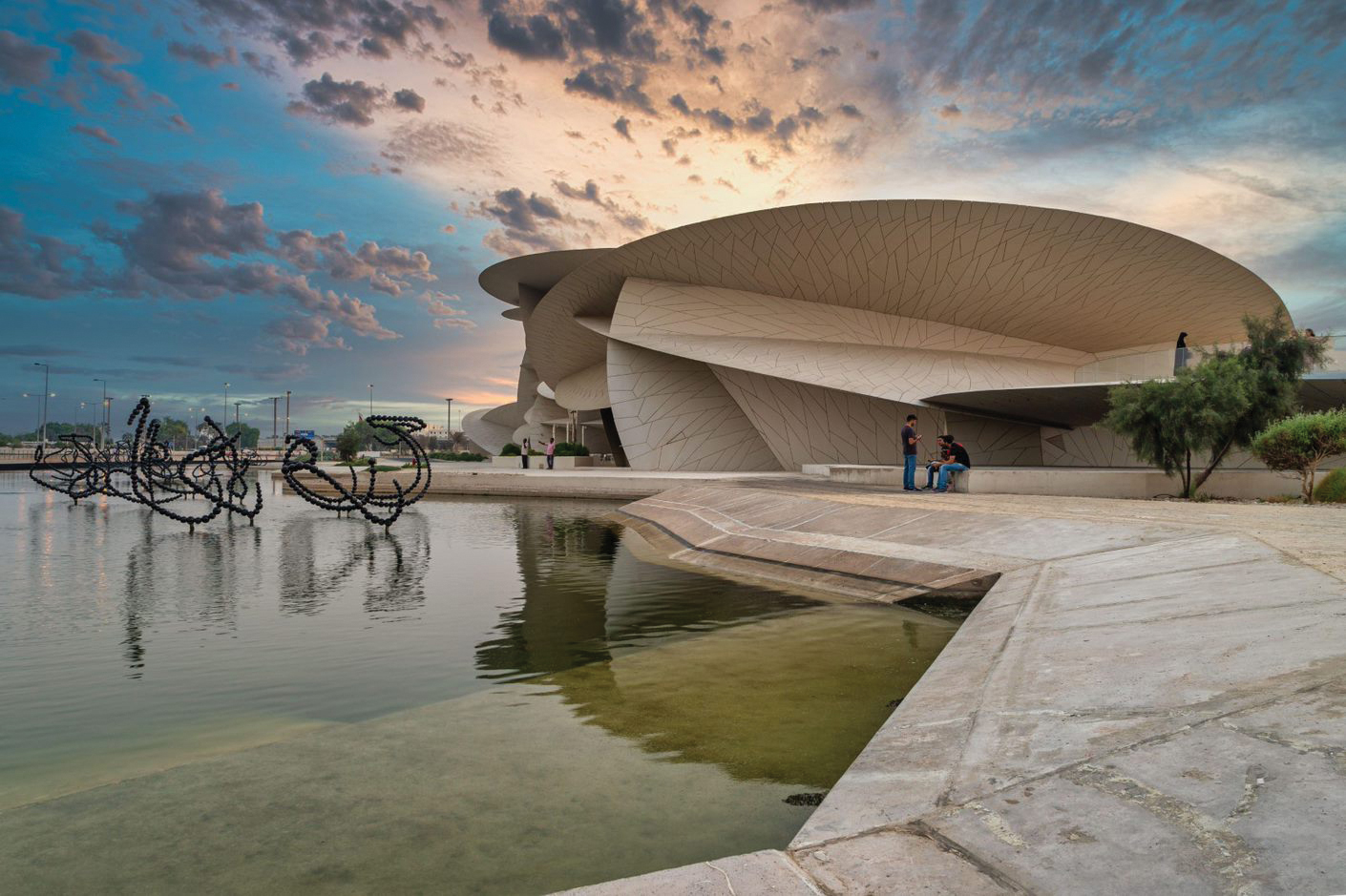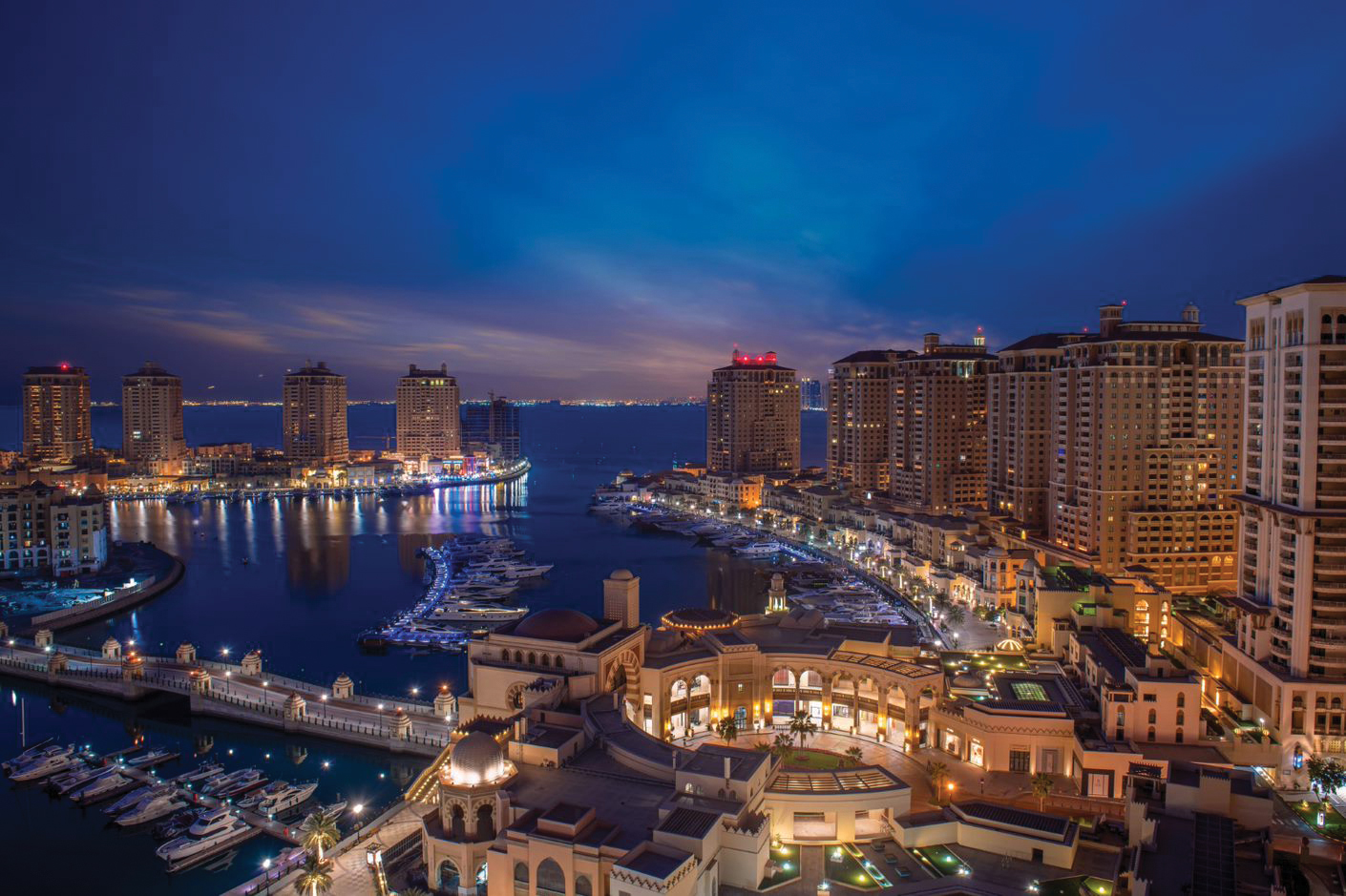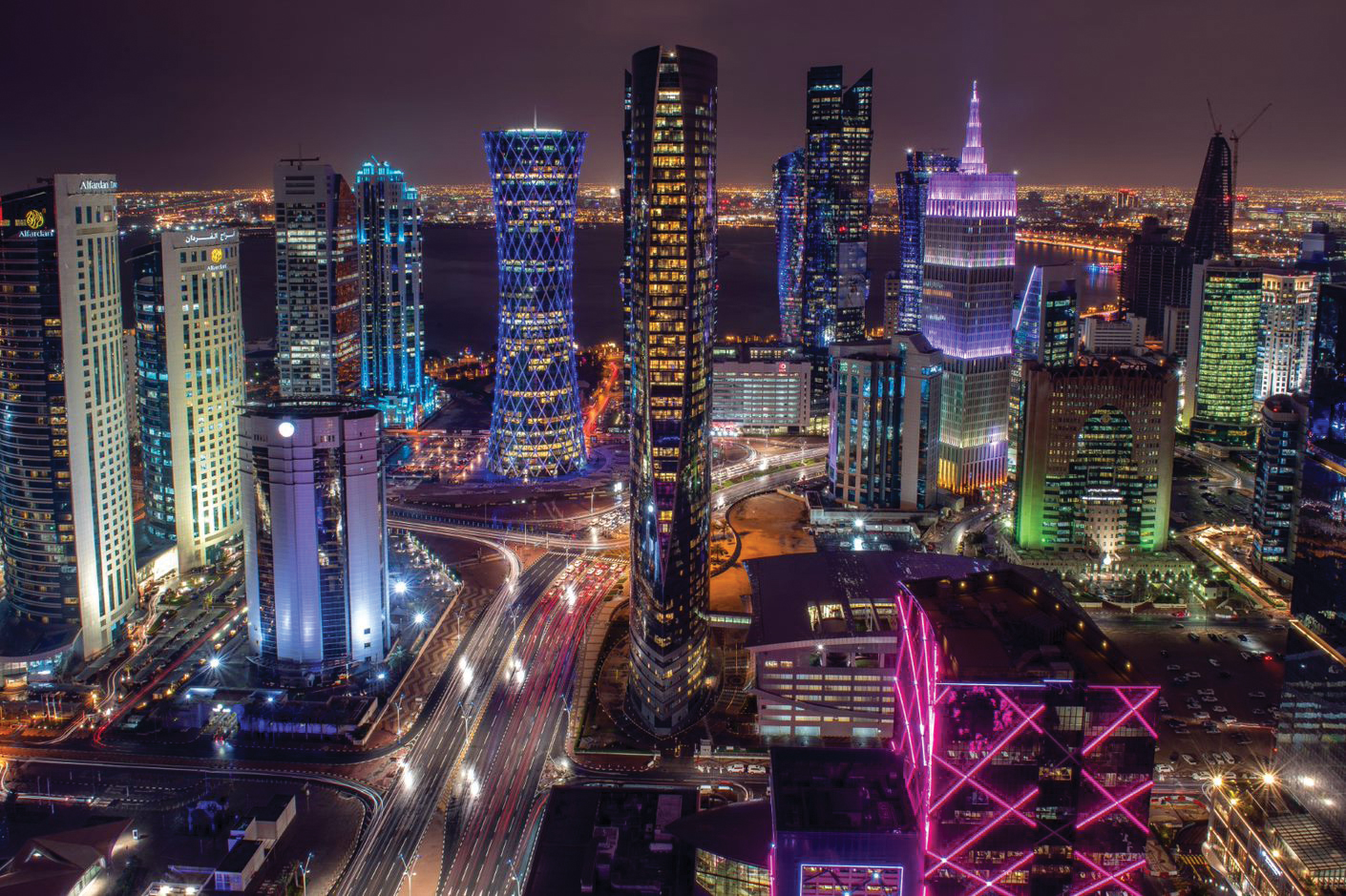When host nation Qatar opens the 2022 World Cup against Ecuador on November 20 at Al Bayt Stadium in Al Khor, the entire world will be watching. The leaders of Invest Qatar hope that, eventually, a good portion of these global soccer fans become visitors and investors.
For an in-depth perspective on how Invest Qatar plans to capitalize on hosting this global sporting spectacle for a month, we turned to the organization’s Chief Executive Officer H.E. Sheikh Ali Alwaleed Al-Thani. Just four years ago, Sheikh Ali was appointed coordinator for economic affairs at the Qatar Prime Minister’s office. overseeing a broad range of activities related to Qatar’s economic and investment agenda.
How does Invest Qatar plan to use the World Cup event to market and promote Qatar as a welcoming destination for foreign direct investment?
SHEIKH ALI: This World Cup is special in many ways as it’s the first to be held in our region, the first to be held in an Arab country — but most importantly it will showcase the attractiveness of Qatar as a destination to live, work and do business to the millions of fans that will visit. We believe that hosting this mega sporting event will demonstrate to investors that Qatar is open and welcoming and that our significant investment in infrastructure has created a fertile foundation from which to grow and expand their businesses. Additionally, investors will experience Qatar’s global connectivity with direct connections to more than 160 markets by air and sea, and its diverse, vibrant cultural scene that is home to 85+ nationalities.
“The Supreme Committee for Delivery and Legacy predicts the economic contribution of the World Cup will be above US$17 billion.”
– Invest Qatar Chief Executive Officer H.E. Sheikh Ali Alwaleed Al-Thani
Since Qatar won the World Cup bid in 2010, opportunities have emerged across the board and paved the path for investors to launch their operations in the country and further expand in the region. The Supreme Committee for Delivery and Legacy predicts the economic contribution of the World Cup will be above US$17 billion. With roughly 1.5 million people expected to visit Qatar, more than $6 billion will be invested directly. The indirect economic benefits will be even more significant.
In short, the World Cup represents a catalyst to propel investment growth in Qatar. It will set the stage for Qatar to strengthen its position as a strategic hub, where sustainable growth and business excellence can be achieved.

What have been some of your biggest FDI project wins?
SHEIKH ALI: Since IPA Qatar’s inception in 2019, we have been pursuing a strategic role of attracting foreign investors to Qatar, while helping them achieve their ambitions by delivering the support, advice and expertise they need. As a custodian of the national ‘Invest Qatar’ brand, and by leveraging an integrated system of business and licensing platforms, we support investors through their investment journey, from exploration and setup to expansion, in a way that is tailored to their unique goals and plans to ensure their long-term success.
Over the last three years, we embarked on many significant partnerships with strategic partners across different sectors, such as IT, digital, financial services and agriculture, among others. To name a few, this year, we proudly announced our collaboration with:
- Credit Suisse: to expand the bank’s existing operations in Doha and establish the Qatar Technology & Engineering Hub, in addition to creating up to 100 jobs;
- Microsoft: to reinforce the mutual commitment of both organizations toward the development of an innovation-driven digital sector in Qatar;
- UBS: to support the establishment of a Business Solutions Hub in Qatar;
- Iberdrola Group: to establish a world-leading innovation center to advance digital utility in Qatar, and to expand the Spanish group’s research, development and innovation activities through the Doha-based Iberdrola Innovation Middle East.
- Green Boom: to facilitate the introduction of its green cutting-edge technologies through the setting up of a manufacturing plant and regional distribution center in Doha to serve the Middle East, North Africa and India.
Which industry sectors are you targeting and why?
SHEIKH ALI: Qatar continues to expand opportunities across all sectors. Looking forward, as the country spearheads its economic diversification efforts and its transformation into an advanced country, there is growing momentum in the non-hydrocarbon sector — currently over 50% of Qatar’s GDP — and we are witnessing more opportunities emerging across the board. Advanced manufacturing is one of the key sectors with promising growth potential. As Qatar eyes to double this sector value — currently worth $11.4 billion — and with the Free Zones and the launch of an Advanced Manufacturing Hub, in partnership with WEF, opportunities are emerging, ranging from semiconductor and electric vehicles to aerospace parts manufacturing.

Qatar has attracted 71% of investments into the Middle East in Q2 2022, creating 6,680 jobs across 11 projects and securing investments worth $19.2 billion.
Source: fDi Markets
Other promising areas are financial and professional services, including fintech, e-commerce, venture capital and startups, in addition to the digital and ICT sectors. This latter sector has been gaining traction and attracting both local and foreign investors, especially in emerging segments such as artificial intelligence, data analytics, cybersecurity, machine learning and the internet of things. ICT spending will reach an estimated $9 billion by 2024, at a compounded annual growth rate of 9.2%, according to Global Data.
What major infrastructure investments has Qatar made in recent years? Are any others planned?
SHEIKH ALI: One of the gains of Qatar’s commitment to the realization of its national vision for the year 2030 is a $200 billion government-sponsored investment program that spans an entire spectrum of sectors, industries and domains. The country dedicates significant investments to revolutionize and modernize its infrastructure, which will sustain Qatar’s growth for years. Some of the big-ticket projects include, but are not limited to, Doha Metro, one of the most advanced rail transit systems in the world, and the expansion of the Hamad International Airport, the world’s best airport. Other projects include Lusail City — a 38-square-kilometer green smart city project with $45 billion of target investments — Hamad Port, and the significant developments in the tourism and hospitality sectors.
Equally significant are the digital infrastructure investments, which strengthened Qatar’s digital leadership, having the first commercial 5G networks in the world in 2018, and ranked fourth in the 5G Leadership Index with 99% internet penetration.
What is your view on the increasing importance of public-private partnerships (PPPs) in Qatar’s inbound FDI?
SHEIKH ALI: The issuance of the PPP law in May 2020 symbolizes a landmark in Qatar’s journey to diversify its economy and bolster its vibrant business ecosystem, while emphasizing productivity, competitiveness and private sector-led growth. This has indeed contributed to paving the path for more investments into the country, as the law reinforces investors as genuine, long-term partners in the economic diversification strategy. It is a win-win situation for all parties. On one side, the country pairs public goods with a competitive offer, helping bring in the latest technology, expertise and skills for these projects. On the other side, investors are offered access to the market’s multisectoral opportunities, get introduced to the local economy and connected to a network of potential partners who support them in discovering the compelling business climate Qatar has to offer.
The significance of PPPs is underlined by the growing number of new domains that have been added to the PPP framework. To name a few, education, healthcare, real estate, tourism, power and utilities, among others, offer PPP opportunities. Recently, Qatar awarded an ambitious QAR 5.4 billion (US$1.48 billion) PPP contract for the development, design, build, finance and procurement of a sewage treatment works (STW) project. This major PPP deal is a culmination of the state’s efforts to consolidate the partnership between the public and private sectors, on the one hand, and attract and stimulate local and foreign investments on the other.
What are your major goals over the next three years?
SHEIKH ALI: We remain committed to showcasing Qatar as an exceptional investment destination, connecting international investors to lucrative business opportunities that support their long-term success. Pursuing our efforts in this regard, we aim to maintain our upward growth trend and even break last year’s record achievements. In 2021, we witnessed the establishment of 1,100+ new companies across business licensing platforms, in addition to 117 investment project commitments and 82 new FDI projects.
More than QAR 4 billion (US$ billion) in FDI capital inflows to Qatar, creating around 4,200 new jobs, spanning different sectors, such as software & IT services, food & beverages, business services and communications, among others. Most of the foreign investments originated from the United States and Switzerland, in addition to India, Germany, Canada, the UK, France, and UAE among others. Additionally, the latest economic insights of the fDi Markets data show that Qatar has attracted 71% of investments into the Middle East in Q2 2022, creating 6,680 jobs across 11 projects and securing investments worth $19.2 billion. We look forward to growing these investments further, as well as welcoming new ones from across the world.

